
Barbara Joan "Barbra" Streisand is an American singer, actress, songwriter, film and television producer, and director. With a career spanning over six decades, she has achieved success in multiple fields of entertainment and is among the few performers awarded an Emmy, Grammy, Oscar, and Tony (EGOT).
Kander and Ebb were a highly successful American songwriting team consisting of composer John Kander and lyricist Fred Ebb. Known primarily for their stage musicals, which include Cabaret and Chicago, Kander and Ebb also scored several movies, including Martin Scorsese's New York, New York. Their most famous song is the theme song of that movie. Recorded by many artists, "New York, New York" became a signature song for Frank Sinatra. The team also became associated with two actresses, Liza Minnelli and Chita Rivera, for whom they wrote a considerable amount of material for the stage, concerts and television.

"People" is a song composed by Jule Styne with lyrics by Bob Merrill for the 1964 Broadway musical Funny Girl starring Barbra Streisand, who introduced the song. The song was released as a single in 1964 with "I Am Woman", a solo version of "You Are Woman, I Am Man", also from Funny Girl.

"If You Were the Only Girl (In the World)" is a popular song, written by Nat D. Ayer with lyrics by Clifford Grey. It was written for the musical revue The Bing Boys Are Here, which premièred on 19 April 1916 at the Alhambra Theatre in Leicester Square, London. The song was originally performed as a duet between Lucius Bing, played by George Robey, and his love interest Emma, originated by Violet Loraine.
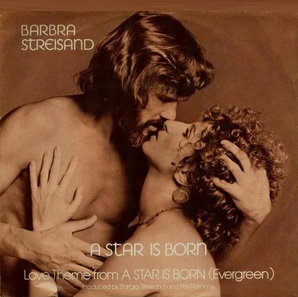
"Evergreen" is the theme song from the 1976 film A Star Is Born. It was composed and performed by American singer, songwriter, actress and director Barbra Streisand with lyrics by Paul Williams, and arranged by Ian Freebairn-Smith. The song was released on the soundtrack album to A Star Is Born.

The Barbra Streisand Album is the debut album by American singer Barbra Streisand, released February 25, 1963, on Columbia Records, catalogue CL 2007 in mono and CS 8807 in stereo. It peaked at number 8 on the Billboard Top LPs, and has been certified a gold album by the RIAA. By 1966, the album had sold over one million copies worldwide.
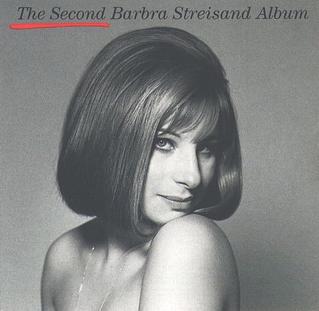
The Second Barbra Streisand Album is the title of Barbra Streisand's second solo studio album. It was released in August 1963, just six months after the release of her debut album, The Barbra Streisand Album, and was recorded in four days in June 1963.
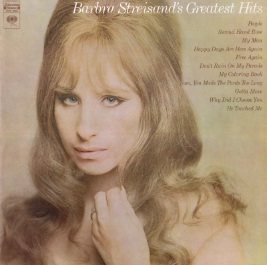
Barbra Streisand's Greatest Hits is the first greatest hits album recorded by American vocalist Barbra Streisand. It was released in January 1970, by Columbia Records. The record is a compilation consisting of 11 commercially successful singles from the singer's releases in the 1960s, with a majority of them being cover songs. The songs on Barbra Streisand's Greatest Hits originally appeared on one of the singer's eight previous albums and span in release from 1963 to 1968. It contains her most commercially successful tracks, including her first Billboard Hot 100 top ten single "People" and top 40 entry "Second Hand Rose". The album was distributed on compact disc in 1986 and rereleased under the title The Hits in 2006.
"Lover, Come Back to Me" is a popular song composed by Sigmund Romberg with lyrics by Oscar Hammerstein II for the Broadway show The New Moon, where the song was introduced by Evelyn Herbert and Robert Halliday. The song was published in 1928.

What About Today? is the eleventh studio album released in July 1969 by Barbra Streisand. It is considered to be her first attempt at recording contemporary pop songs and features songs by The Beatles and Paul Simon, among others.
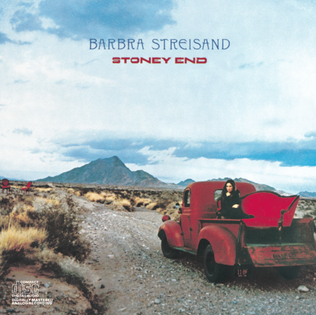
Stoney End is the twelfth studio album by American singer Barbra Streisand. Released in 1971, it was a conscious change in direction for Streisand with a more upbeat contemporary pop/rock sound and was produced by Richard Perry. The album included cover versions of many songs by contemporary singer-songwriters of the day including Laura Nyro, Randy Newman and Joni Mitchell.

Lazy Afternoon is the seventeenth studio album recorded by American singer Barbra Streisand. It was released on October 14, 1975, by Columbia Records. Following a mixed critical response to her previous studio album, ButterFly (1974), the singer began working with new musicians for the project. Recorded in April 1975 in Los Angeles, Lazy Afternoon contains pop standards. Producer Rupert Holmes wrote three songs on the album and co-wrote a fourth, "By the Way", with Streisand. She also included a few cover songs, such as Four Tops' "Shake Me, Wake Me ", Stevie Wonder's "You and I", and Libby Holman's "Moanin' Low".
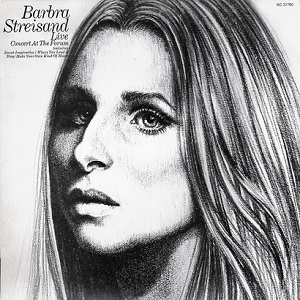
Live Concert at the Forum is the second live album by American singer Barbra Streisand, released physically on October 1, 1972, by Columbia Records. Produced by long-time collaborator Richard Perry, it was recorded at The Forum in Inglewood, part of Greater Los Angeles, on April 15, 1972, during Four for McGovern, a concert held in benefit for George McGovern's 1972 presidential campaign. A CD version of Live Concert at the Forum was released on September 6, 1989.
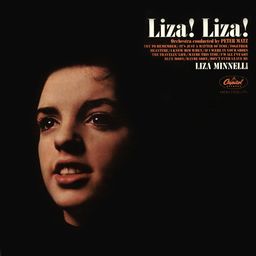
Liza! Liza! is the debut studio album by American singer Liza Minnelli. It was released on October 12, 1964, by Capitol Records. The album contains her interpretations of twelve pop standards. It was recorded in June 1964 at Capitol Records' New York studio at 151 West 46th Street.

All Alone Am I is the eighth studio album by American singer Brenda Lee. The album was released February 18, 1963, on Decca Records and was produced by Owen Bradley. The album was the first of two studio albums released in 1963 and the album's title track became a Top 10 hit on the Billboard Hot 100.

Days of Wine and Roses and Other TV Requests is the eleventh studio album by American pop singer Andy Williams and was released in April 1963 by Columbia Records following his first season as host of his variety series, The Andy Williams Show. The LP has a studio recording of the closing theme from the show, "May Each Day", and continues the format of his previous Columbia releases by including songs from the 1920s, 1930s, 1940s, and 1950s.

"Didn't We" is a song recorded by Irish singer and actor Richard Harris for his debut studio album, A Tramp Shining (1968). It was written and produced by Jimmy Webb and originally served as the B-side to Harris' 1968 single "MacArthur Park". "Didn't We" was then distributed as the record's single by Dunhill Records, also in 1968. A traditional pop song, Harris sings about his life in the past. Commercially, it charted at lower positions of both the United States and Canada, and in the higher ranks of their Adult Contemporary component charts. Harris featured "Didn't We" on several of his greatest hits albums, including The Richard Harris Collection: His Greatest Performances from 1973. That same year, the song was reissued as a promotional single paired alongside his 1971 single "My Boy".

"Jubilation" is a song recorded by Canadian singer-songwriter Paul Anka for his 1972 studio album of the same name. Anka wrote the song with Johnny Harris, who also produced the track. It was released in 1972 as a 7" single by Buddah Records. A gospel song, the lyrics of "Jubilation" find the protagonist preaching about religious themes. Making a moderate commercial impact, it appeared on the record charts in both Canada and the United States. It has since been included on several of Anka's greatest hits albums and covered by The Edwin Hawkins Singers in 1973.

"How Lucky Can You Get" is a song recorded by American vocalist Barbra Streisand for the official soundtrack to the 1975 film Funny Lady. It was released as a 7" single in April 1975 through Arista Records. The song was written by Fred Ebb and John Kander, while production was handled by Peter Matz. "How Lucky Can You Get" is one of the new songs on the soundtrack, with its origins coming from Fanny Brice, the character Streisand portrays in the aforementioned film. The music pertains to Brice herself, particularly the sarcastic nature of the lyrics that are accompanied by an "insistent" melody and production. It was suggested that the pattern of the lyrics may have been influenced by Giacomo Puccini's 1896 opera, La bohème.

Funny Lady is the soundtrack album of the 1975 musical film of the same title, starring Barbra Streisand. Released by Arista Records on March 15, 1975, arranged, conducted, and coordinated by Peter Matz, the album's fifteen tracks are performed by Streisand, James Caan, and Ben Vereen. A sequel to the 1968 musical comedy-drama Funny Girl, the songs extend the semi-biographical account of the life of American performer Fanny Brice. Funny Lady also included songs written by Brice's third husband Billy Rose. New music by Kander and Ebb included "How Lucky Can You Get", the album's only single, released in April 1975.


















